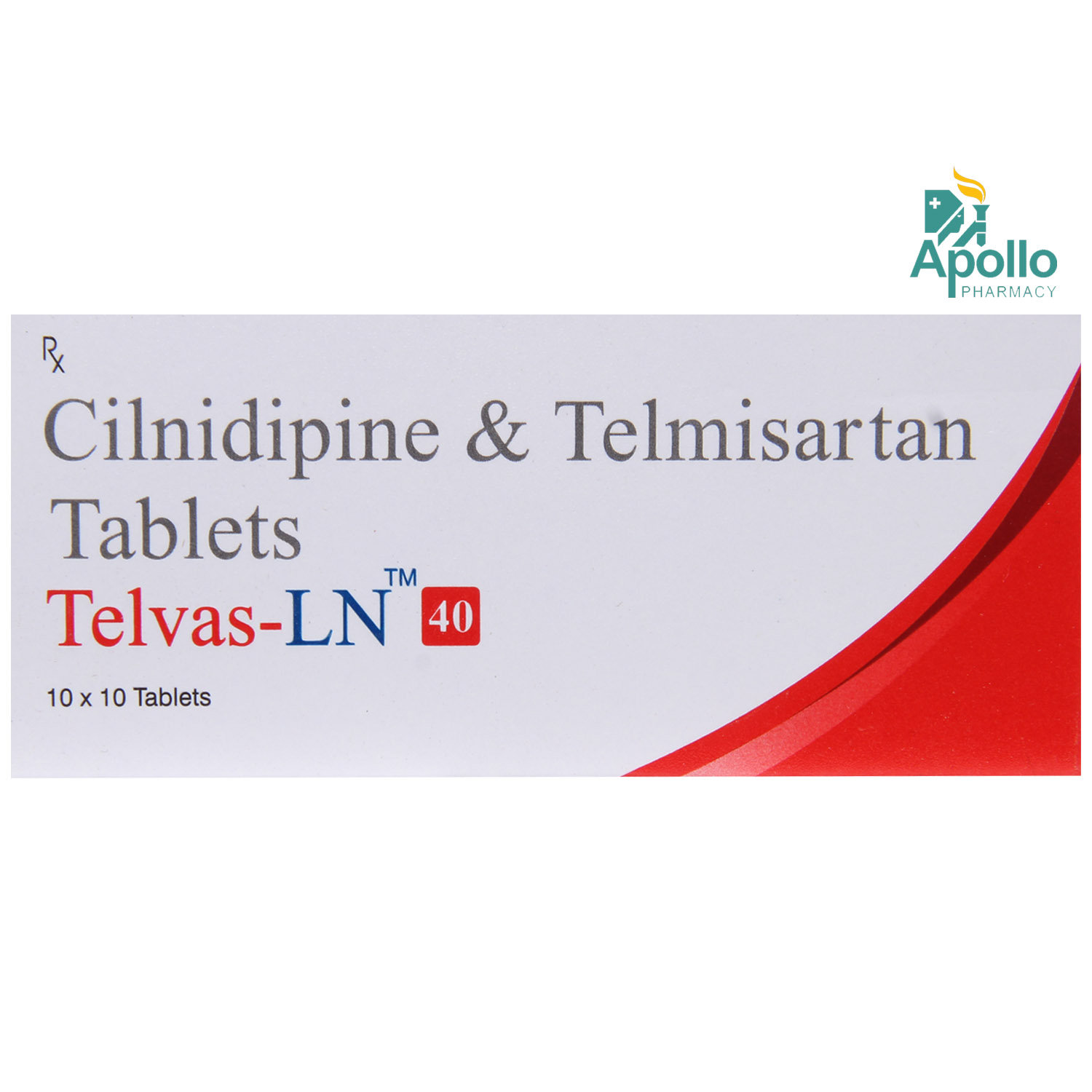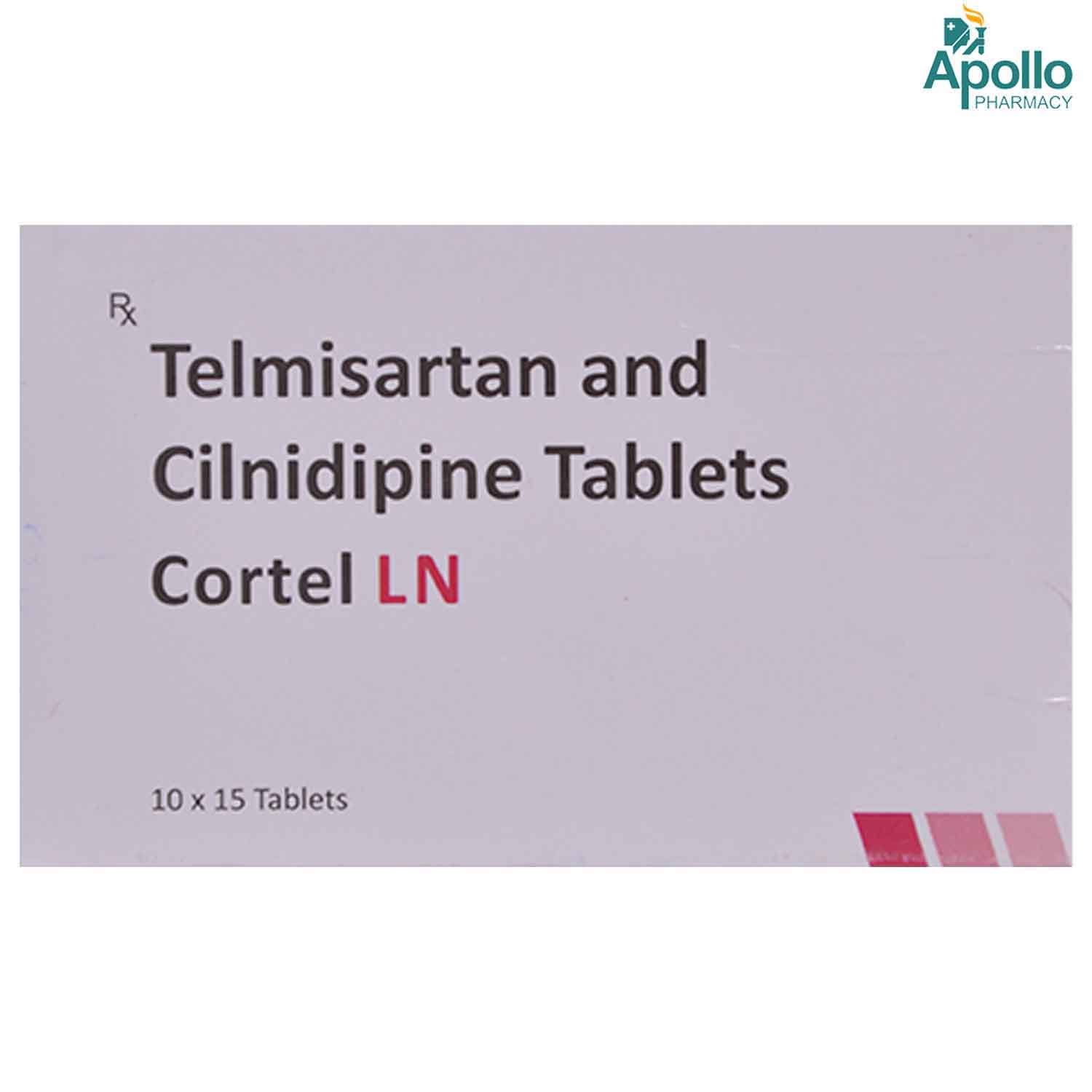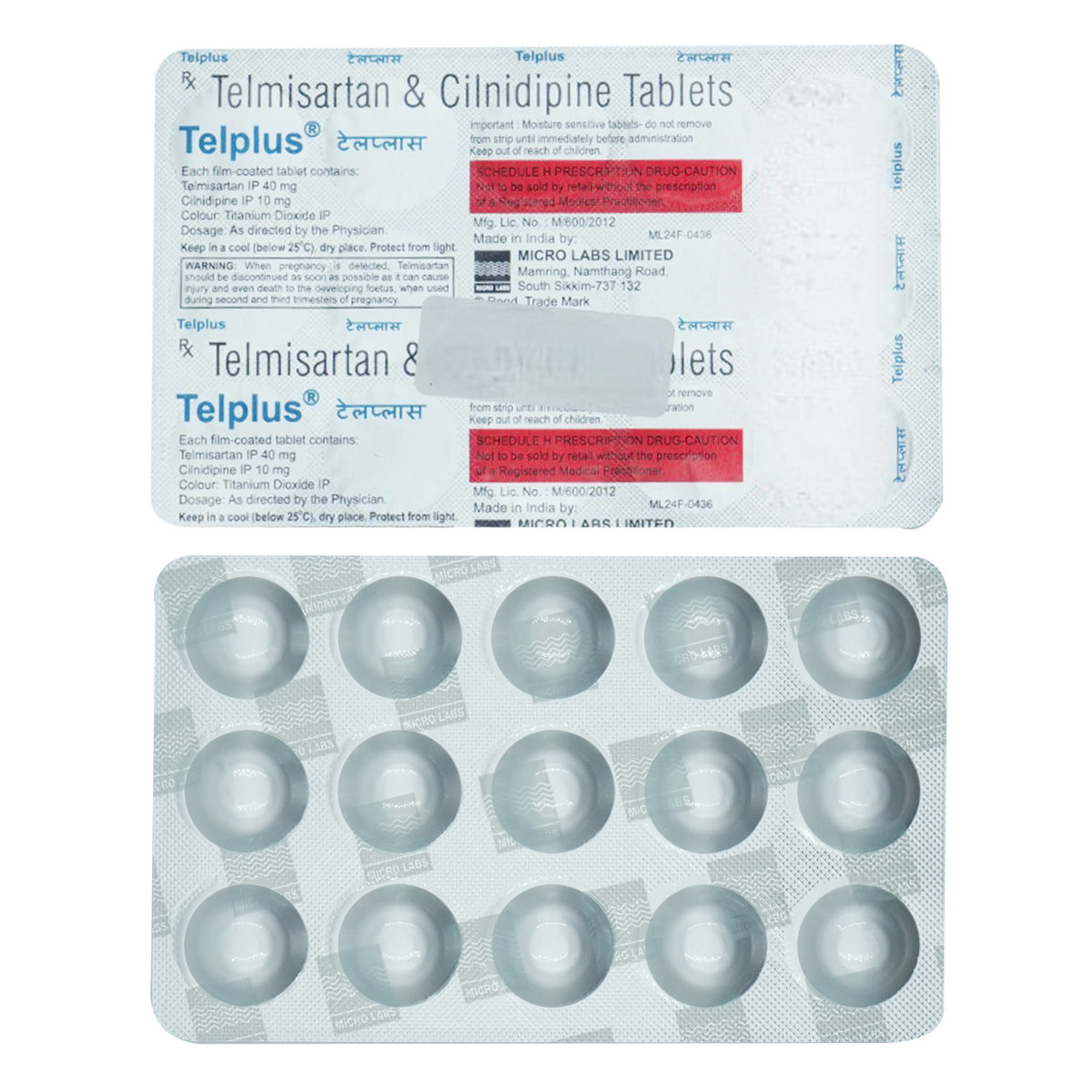Cilagard-T 40 mg/10 mg Tablet 10's
MRP ₹93
(Inclusive of all Taxes)
₹13.9 Cashback (15%)
Know Your Delivery Time
Provide Delivery Location

Secure Payment

India's Most Trusted Pharmacy

Genuine Products
Composition :
Manufacturer/Marketer :
Consume Type :
Expires on or after :
Return Policy :
About Cilagard-T 40 mg/10 mg Tablet
Cilagard-T 40 mg/10 mg Tablet is used in the treatment of hypertension (high blood pressure) and heart-related chest pain (angina). Hypertension is a lifelong or chronic condition in which the force exerted by the blood against the artery walls becomes so high that it leads to heart disease. Angina is chest pain caused by reduced blood flow to the heart.
Cilagard-T 40 mg/10 mg Tablet is composed of Cilnidipine and Telmisartan. This medicine, together, helps lower elevated blood pressure and the workload placed on the heart. It also blocks the action of certain substances responsible for tightening the blood vessels. Thus, it reduces the chance of having a heart attack or stroke in the future.
Not everyone who is taking Cilagard-T 40 mg/10 mg Tablet will get these side effects. Sometimes, Cilagard-T 40 mg/10 mg Tablet may cause common side effects like a sore back, diarrhoea, a congested feeling, a spinning sensation, and soreness in the sinus. Most of these side effects of Cilagard-T 40 mg/10 mg Tablet do not require medical attention and gradually resolve on their own over time. However, if the side effects persist, contact your doctor.
You can take Cilagard-T 40 mg/10 mg Tablet with food or without food. It should be swallowed as a whole with a glass of water. Do not chew, bite, crush, or break it. Your doctor will advise you on how often you should take your tablets based on your medical condition. It is always important to complete your treatment course for better results.
Inform your doctor if you are allergic to Cilagard-T 40 mg/10 mg Tablet . Patients suffering from kidney problems may be required to undergo regular blood creatinine and potassium levels tests, as Cilagard-T 40 mg/10 mg Tablet affects electrolyte levels in our body, which can be monitored. Don't stop taking Cilagard-T 40 mg/10 mg Tablet without your doctor's advice. Suddenly stopping the use of Cilagard-T 40 mg/10 mg Tablet may cause changes in your heart rhythm and blood pressure, cause chest pain, or a heart attack. Your doctor will gradually lower your dose to help prevent these symptoms. Drinking plenty of fluids while taking this medicine is advised to overcome dry mouth and extreme thirst.
Uses of Cilagard-T 40 mg/10 mg Tablet
Cilagard-T 40 mg/10 mg Tablet used to treat Hypertension (high blood pressure). The detailed uses of Cilagard-T 40 mg/10 mg Tablet are as follows:
- Hypertension Management: Cilagard-T 40 mg/10 mg Tablet is used to manage hypertension (high blood pressure), by reducing the risk of heart-related issues and complications.
- Cardiovascular Protection: Cilagard-T 40 mg/10 mg Tablet provides cardiovascular protection by lowering blood pressure, reducing the risk of heart attacks and strokes.
- Diabetic Patient Care: Cilagard-T 40 mg/10 mg Tablet can also provide diabetic care, by protecting kidney function and controlling blood pressure levels effectively.
- Improving Blood Circulation: Cilagard-T 40 mg/10 mg Tablet improves blood circulation, by benefiting various organ functions and overall health.
- Reduced Sympathetic Activity: Cilagard-T 40 mg/10 mg Tablet reduces sympathetic activity, making it suitable for patients with tachycardia (rapid heart rate) by preventing excessive nervous system activation.
- Kidney Protection: Cilagard-T 40 mg/10 mg Tablet helps to protect kidney function, particularly in patients with hypertension and diabetes.

Have a query?
Directions for Use
- Cilagard-T 40 mg/10 mg Tablet can be taken with or without food, as advised by your doctor.
- It is usually taken once daily at the same time each day or as prescribed by your doctor.
- Swallow Cilagard-T 40 mg/10 mg Tablet as a whole with a glass of water.
- Do not crush, chew, or break it.
Key Benefits
- Cilagard-T 40 mg/10 mg Tablet is composed of Cilnidipine and Telmisartan, prescribed to treat hypertension.
- Cilnidipine blocks the activities of the calcium channels present in the heart's blood vessels. As a result, the blood vessels widen, and supply to the heart increases, lowering the blood pressure and the workload on the heart.
- Telmisartan works by blocking the action of certain substances responsible for tightening the blood vessels. It allows the blood to flow more smoothly and makes the heart more efficient at pumping blood.
- This medicine helps reduce the chance of having a heart attack or stroke in the future.
How Cilagard-T 40 mg/10 mg Tablet Works
Storage
What if I have taken an overdose of Cilagard-T 40 mg/10 mg Tablet
Drug Warnings
- Avoid taking Cilagard-T 40 mg/10 mg Tablet if you are allergic to any of its components.
- This medicine should be taken with caution in patients with congestive heart failure, liver disease, peripheral oedema (swelling of hands/legs), cardiogenic shock (when heart suddenly can not pump sufficient blood), recent MI (myocardial infarction) or acute unstable angina (chest pain), severe aortic stenosis (when heart valves become diseased).
- You should monitor your blood pressure regularly to make sure the Cilagard-T 40 mg/10 mg Tablet is working efficiently.
- Prolonged intake of Cilagard-T 40 mg/10 mg Tablet can lead to a lowering of blood pressure (hypotension).
- Don't stop taking Cilagard-T 40 mg/10 mg Tablet without consulting your doctor. Suddenly stopping the use of Cilagard-T 40 mg/10 mg Tablet may cause changes in your heart rhythm and blood pressure, cause chest pain, or a heart attack. Your doctor will gradually lower your dose to help prevent these symptoms.
Diet & Lifestyle Advise
- Maintain a healthy weight with a BMI of 19.5-24.9.
- Engage in regular physical activity or exercise for at least 150 minutes per week, or approximately 30 minutes per day, most days of the week. Doing this can help you to lower your raised blood pressure by about 5 mmHg.
- Opt for a diet rich in whole grains, fruits, veggies and low-fat dairy products.
- Limiting the intake of sodium chloride (table salt) in your daily diet to 2300 mg per day or less than 1500 mg is ideal for most adults.
- If you are taking alcohol, then only one serving for women and two servings for men is advisable.
- Quitting smoking is the best strategy to lower the risk of heart disease.
- Avoid chronic stress, as it can raise your blood pressure. Try to enjoy and spend time with your loved ones to cope with stress and practice mindfulness techniques.
- Monitor your blood pressure daily, and if there is too much fluctuation, immediately contact your doctor.
- Try to include heart-healthy omega-3 fatty acid-containing foods in your daily diet. You can also use low-fat cooking oil like olive oil, soybean oil, canola oil, and coconut oil to help lower your elevated blood pressure.
Habit Forming
Therapeutic Class
All Substitutes & Brand Comparisons
RX
Telvas-LN 40 Tablet 10's
Aristo Pharmaceuticals Pvt Ltd
₹106.5
(₹9.59 per unit)
14% COSTLIERRX
Cortel LN Tablet 15's
Corona Remedies Pvt Ltd
₹163
(₹9.78 per unit)
16% COSTLIERRX
Telplus Tablet 15's
Micro Labs Ltd
₹175
(₹10.5 per unit)
25% COSTLIER
Alcohol
Safe if prescribed
Cilagard-T 40 mg/10 mg Tablet can lower your blood pressure causing dizziness and drowsiness. It can also cause orthostatic hypotension (sudden fall in blood pressure while standing). So try to avoid intake of Cilagard-T 40 mg/10 mg Tablet with alcoholic beverages.
Pregnancy
Consult your doctor
There is no clinical data on the safety of Cilagard-T 40 mg/10 mg Tablet during pregnancy. So, it should be taken with caution.
Breast Feeding
Consult your doctor
Nursing mother should consult doctor before taking Cilagard-T 40 mg/10 mg Tablet .
Driving
Safe if prescribed
Cilagard-T 40 mg/10 mg Tablet may cause side effects which could affect your ability to drive. Taking Cilagard-T 40 mg/10 mg Tablet may lower your blood pressure
Liver
Consult your doctor
There is limited information available on the use of Cilagard-T 40 mg/10 mg Tablet in patients with liver disease. So Cilagard-T 40 mg/10 mg Tablet should be taken with caution and with consultation with the doctor only.
Kidney
Consult your doctor
Cilagard-T 40 mg/10 mg Tablet is probably safe to use in patients with kidney disease. It has shown beneficial and protective effects on the kidney.
Children
Safe if prescribed
The safety and effectiveness of Cilagard-T 40 mg/10 mg Tablet has not been established in children due to limited testing of this drug on children by competent authorities across the world. Hence, it is best to consult a child specialist.
Heart
Cilagard-T 40 mg/10 mg Tablet is often prescribed to patients with heart problems to treat hypertension. However, it must be taken strictly under medical supervision, as it can affect liver and kidney function and may interact with other heart medications.
Geriatrics
Consult your doctor
Cilagard-T 40 mg/10 mg Tablet should be taken with caution in geriatric patients. Please inform your doctor before using Cilagard-T 40 mg/10 mg Tablet .
FAQs
Cilagard-T 40 mg/10 mg Tablet is used to treat hypertension (high blood pressure). It works by widening the blood vessels, allowing the blood to flow more smoothly and making the heart more efficient at pumping blood throughout the body.
It is advised to continue your medicine even after your blood pressure is under control or becomes normal, as blood pressure can shoot up at any time. If you have persistent headaches, please consult your doctor immediately.
High blood pressure in the stage of pregnancy may cause eclampsia, which can be harmful to both baby and mother. So, during the pregnancy, you should have regular blood pressure monitoring.
No, it is a prescribed drug, given by a physician to prevent specific medical conditions. Taking it on your own can cause unwanted side effects.
Yes, Cilagard-T 40 mg/10 mg Tablet can cause dizziness. It is advised to avoid driving or operating any heavy machinery while taking Cilagard-T 40 mg/10 mg Tablet . In case you feel dizzy or lightheaded, it is advised to rest for some time until you feel better.
Avoid alcohol consumption as it might lower the blood pressure leading to side effects. Do not stand up suddenly from a lying position as it may cause dizziness.
Cilagard-T 40 mg/10 mg Tablet should be swallowed as a whole with water; do not crush or chew it.
Cilagard-T 40 mg/10 mg Tablet contains Cilnidipine (calcium channel blocker) and Telmisartan (angiotensin receptor blocker).
Cilagard-T 40 mg/10 mg Tablet is not a blood thinner. It is an anti-hypertensive medicine used to treat high blood pressure.
Maintain a healthy weight by exercising regularly and including healthy food in your diet. Avoid smoking and alcohol consumption. Manage stress by doing meditation or yoga. Cut down on salt and unhealthy foods.
High potassium levels can be determined by the doctor through certain tests. Signs of high potassium include nausea, vomiting, chest pain, difficulty breathing, and irregular heartbeat.
Cilagard-T 40 mg/10 mg Tablet contains telmisartan which might cause foetal harm if used during pregnancy. Therefore, it may not be safe to use Cilagard-T 40 mg/10 mg Tablet during pregnancy, especially during the second and third trimesters of pregnancy.
If you miss a dose of Cilagard-T 40 mg/10 mg Tablet take it as soon as you remember, However, if it is almost time for the scheduled dose, skip the missed dose and take the next dose at the scheduled time.
Store Cilagard-T 40 mg/10 mg Tablet at room temperature. Keep it out of sight and reach of children.
Side effects of Cilagard-T 40 mg/10 mg Tablet include sore back, diarrhoea, congested feeling, spinning sensation, and soreness in the sinus. Most of these side effects may not require medical attention and gradually resolve over time. However, if the side effects are persistent, reach out to your doctor.
Other medicines should be used with Cilagard-T 40 mg/10 mg Tablet only if advised by the doctor. Before taking other medicines, consult the doctor to prevent any interactions.
Country of origin
Manufacturer/Marketer address
Disclaimer
Author Details
We provide you with authentic, trustworthy and relevant information
Reference
- https://www.ncbi.nlm.nih.gov/pmc/articles/PMC3905258/
- https://www.drugsupdate.com/generic/view/1129/Cilnidipine
- https://medicaldialogues.in/uploads/2020/05/20/file_upload-129064.pdf
- https://medicaldialogues.in/partner/jbcpl/cilacar-t-cilnidipine-telmisartan
- https://www.centaurpharma.com/downloads/TELMITRUST%20LN.pdf
- https://www.medicines.org.uk/emc/files/pil.5196.pdf
- https://medicaldialogues.in/partner/jbcpl/cilacar-t-cilnidipine-telmisartan









